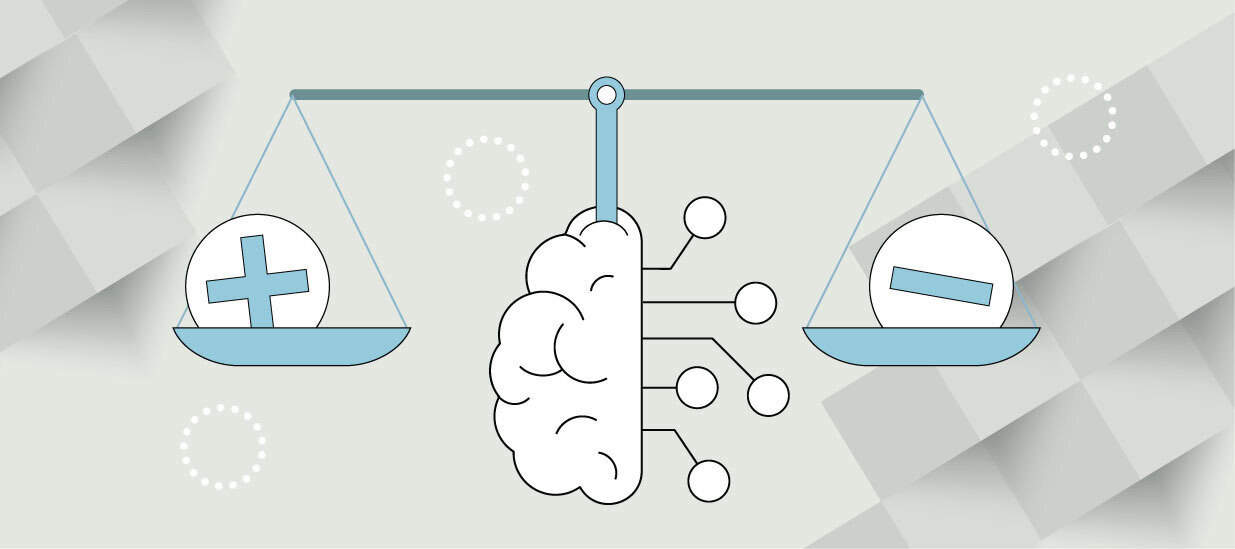4 minute read
What is the role of technical knowledge in product management? Does having a technical background help or potentially hinder aspiring product professionals? This article discusses the topic from the point of view of a seasoned expert who is both a product professional and an engineer.
Many aspiring product managers wonder whether a technical background is essential for success in their role. This is something that I’ve been asked repeatedly by product professionals over the years. While this is a personal and situational question that has no crisp answer, sharing some of my experiences may help you work more effectively with, or as, a product manager with a technical background.
So, is having a technical background required to be successful as a product manager? The answer is no, but it has certainly helped me to be more effective.
Internal Wiring
I don’t know if I went to school for engineering because of how my brain was wired, or if Carnegie Mellon rewired my brain for me, but I always say it is where I “learned how to learn.” How I approach learning, and how I apply different analytical techniques to synthesis, situational analysis and development of insights is driven by how my brain is wired.
In product-management speak, the way I learn things is a distinctive competence, and it makes me objectively better as a product manager. I would argue that this is because of my technical background. I would expect people with similar backgrounds to have similar advantages. In this respect, my background and my wiring have benefited me as a product manager.
The Inside Track
As a product management professional, I tend to work most frequently with businesses that incorporate software development into developing solutions for their customers. I happen to have also spent several years developing software—and eventually leading teams which were developing software. This arcane knowledge of the secret handshake has helped me develop effective working relationships with the team members creating the product.
When you do something, you learn it more viscerally than if you only read about it. Building on this deeper level of insight, which only comes from doing, is one way to develop camaraderie with the team of people creating your product. It is easy to see how a product manager with a technical background would have an advantage in these types of situations.
The Temporary Crutch
We’ve explored two ways in which a technical background benefits product managers and other product professionals, but this benefit is short lived. Eventually, the information you have will become irrelevant—and eventually it will mislead.
Imagine trying to apply pre-SQL database perspectives to conversations about NoSQL and distributed data storage architectures and the ensuing release-planning activities. You can also, of course, have a bundle of technical knowledge, which is not relevant to your problem domain. Bernoulli’s equation is not going to help me increase conversion rates on a website or assess the value of continuous integration.
You can see the potential for problems if you become too reliant on your former skillset and knowledge base. My approach to mitigating problems is to utilize my knowledge, both current and past, to enrich conversations with shared context, spot patterns in unfamiliar information, and apply my principles of learning to tackle new challenges. I do not try to apply the knowledge to solutioning, beyond using it to guide some directed questioning or to help with hypothesis formulation.
One of the phrases I remember from Pragmatic Institute’s training was a question from my instructor: “If you are going to do their job, who is going to do your job?” That very question helps me walk away when I start to get too far down into the weeds in discussing how we’re going to solve the problems. It is a slippery slope, especially when you really enjoy technology and secretly wish you could be coding away (or designing or testing) with the rest of the team.
Helpful, with a Twist
The crux of it is that the benefit of having a technical background does not come from participating in the technical work, but from how it helps you collaborate with the technical team. Collaboration is a soft skill, and technical wiring can help product managers do it.
Sometimes, we work on products that help customers solve problems in a technical domain. In these cases, being technical can help quite a bit, or be genuinely required, in developing an understanding of your market.
Consider, for example, developing the staffing schedule for a large hospital. You need to be able to synthesize technical problems, combining the abstract mathematical problem (the nurse-rostering problem is a classic computational conundrum) with the business appreciation for defining the “good enough” solution.
In my opinion, developing insights about how to compete in this market requires you to be able to appreciate the mathematical complexity of the value proposition, so that you neither assume it is trivial nor intractable. This is a problem that people will pay to solve. It is also a problem that requires a combination of technical solution and business perspective.
At the end of the day, if you’re a product manager working on a product that tackles a particularly technical issue, I believe that having sufficient “technical wiring” in your brain is essential to fully understand the challenges and opportunities. This doesn’t necessarily mean you need an engineering or technical degree. One of the better (and very technical) product managers I worked with had a history degree, but his brain was wired to think technically.
In a Nutshell
The usefulness of having an existing body of technical knowledge is limited and uncertain for product managers. It is limited because this knowledge is more valuable in practical applications than in collaborative scenarios. It is uncertain because it may quickly become outdated or incorrect. I think of this as a circumstantial outcome of having a technical background—not an asset that can be directly leveraged.
But even if you’re a product manager that does not create products that are considered “technical,” having a technical perspective is still beneficial. And that’s not because it helps you with any of the technical heavy lifting, but because it can make it easier for you to work with those that are doing the technical work.
Author
-

Scott Sehlhorst, with 33 years of experience in product management and strategy, has a rich history with companies like Texas Instruments, Trilogy, and Eaton. With a background spanning Technological University Dublin and Lviv Business-School of UCU, Scott excels in defining portfolio and product strategies. Over the years, he has played a crucial role in aligning business requirements with strategies and helping companies become effective with agile processes. For questions or inquiries, please contact [email protected].
View all posts








